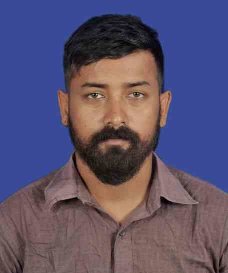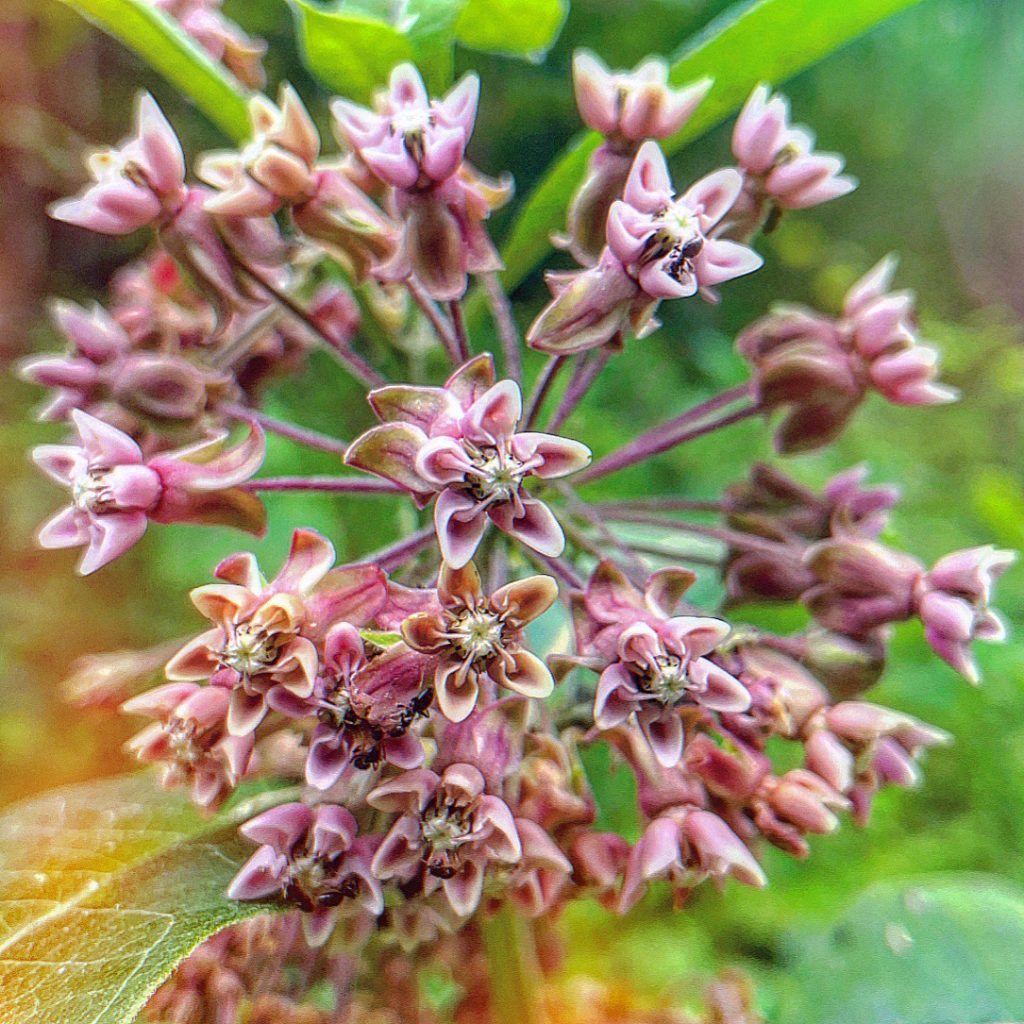The Memories
He can’t
Write away
The memories
But he can
Write through them
And that’s
Not just
A big deal,
It’s everything.
Taylor Dibbert is a writer, journalist, and poet in Washington, DC. “Rescue Dog,” his fifth book, was published in May.

The Memories
He can’t
Write away
The memories
But he can
Write through them
And that’s
Not just
A big deal,
It’s everything.
Taylor Dibbert is a writer, journalist, and poet in Washington, DC. “Rescue Dog,” his fifth book, was published in May.
The Costco Generation
The world is a famine place, a drought place
a war-torn place, a place we have made over
into a place of hunger and displacement. We
watch it all on TV, keep up as best we can. We
try to stay out of it all, very easily we look away
change the channel, fix a snack, reassure our-
selves. There’s nothing wrong with us. We are
the Costco generation, the Walmart generation
the all you can eat generation. We shop our fill
through aisles and aisles stacked to the ceiling
giant sized, jumbo sized, larger portions of all
we need or might need. We fear running out, so
we fill our cupboards and freezer and look for
the best deal, look for the best deal. We are ex-
ceptionalism in action, being exceptional and
living in it, acting it out. While the rest of them
seem to get it all wrong, stay homeless and stay
hungry, have wars playing out within their borders.
We, on the other hand, make war elsewhere and
send the weapons to fight in them. We complain
about the homeless and spend fortunes on diets
so we can look the part and live for almost for-
ever. We fill out the surveys, write online reviews,
spend countless hours on social media trying to
keep up enough to respond. This is the Costco
generation, warehouses full of all the things that
define us, make us over – leave us like this.
Terrorizing
We’re learning about terrorism from
the best of ’em, the worst of ‘em
Isis, Hezbollah, and Hamas, the better
known groups, and those smaller ones
and individuals who often claim
responsibility for some attack, explosion
or the assassination of some political figure
anything to get to be part of the news on
our various news networks, claim it and
get the fame, the recognition they need in
the terrorist game. We watch it go on
24 hours a day, yesterday, last night, this morning.
It’s like an out of control weed, a pandemic,
a bit of climate change that is drying us out
leaving us the shell of our former selves.
Now we have become students of death, in its
various forms, destruction for its own sake.
We’ve become helpless talking heads that
are watching the world come apart, and we
are terrorizing ourselves with it.
Modern Medicine
Check-In and Check-Out for
Interventional Pain Medicine
shares a waiting room with
the Check-In and Check-Out
for Endocrinology and Bone
Density Scan, so there’s sort
of a crowd checking-in or out
most of the day. This is a quiet
crowd, mostly older folks who
probably know what’s coming.
The diabetics cluster around one
end of the room, while the rest
spread out, some alone and some
have a driver along, the pain meds
they get numb up a knee or hip
or other joint making their drive
home a bit of a problem. This is
contemporary medicine with an
assortment of cheerful nurses and
aids and over-serious receptionists
near a sign reminding us not to harm
health care works – it’s a crime to
hit or spit on them or even threaten
them – this is modern medicine and
modern patients are ready to take each
other on – this is the waiting room.
J.K. Durick is a retired teacher, taught for years at Trinity College of Vermont and after that for many years at the Community College of Vermont. He and a friend started following the pandemic by writing a poem for every day – we now have run out of pandemic and have written 1618 and plan to continue till we run out.

The Teacher: Beyond Intelligence "Mero ta Moj cha Yaar,"- “I am having extreme fun” – my friend Ramesh replied when I asked him about his well-being over the phone. Ramesh and I had been intimate friends since childhood, growing up in the same countryside, studying together at the local college, Ramesh was always the top student; his intelligence was far superior to that of his peers, a fact reflected in his academic results as well. After earning his bachelor's degree, he headed to Kathmandu to pursue further education and continued to shine in his academic journey. He excelled at the top of his master's degree program at a prestigious university. His academic achievements were the talk of our village, and we all celebrated his success. However, during the conversation, Ramesh revealed another side of his life. "During the day, I teach at three different private colleges as a part-time English teacher in Kathmandu," he admitted. "But mostly on Friday nights, I spend time drinking whiskey at bars in Thamel with some students. They pay for everything since they belong to rich families." I couldn't help but feel a pang of disappointment. Somewhere deep down, those words compelled me to question the ethics of his professional life, as they seemed to reflect a lack of wisdom and character despite his engaging classes, knowledge, and the success of his students under his guidance. Some philosophers argue that wisdom is a broader term than intelligence. Wisdom includes ethical values and actions, and those who possess wisdom can distinguish between wrong and right. However, despite being a teacher who is supposed to be full of wisdom, Ramesh’s choice to visit bars and drink with students made me feel that he lacks such qualities. During our conversation, he also mentioned that he does not feel the positive burden of duties and responsibilities, as he is a part-time teacher and most of his fellow teachers are unfamiliar with him. "Who comes and goes doesn’t matter. No one knows except the person who hired you," he said. Ramesh is a clear illustration of the moral deficiencies prevalent among many teachers today. It is truly disheartening to realize that they undermine the integrity of the educational system. The conversation made me ponder what makes a good teacher. Is intelligence the only criterion for being a good teacher? What about wisdom and character? What is the right process for selecting teachers? Do educational institutions train teachers to be honest and moral? How can they motivate teachers to be duty-bound and self-disciplined? In recent years, with the rise of science and technology, teachers have become more resourceful and knowledgeable than ever. However, it is crucial for them to also embody wisdom and good character. The role of a teacher is not only to impart academic knowledge but also to serve as a role model for students. The impact of a teacher on a student's life spreads beyond the classroom; Teachers’ values, ethics, overall personality, and character absolutely influence students. Therefore, the following considerations should be made during the selection process and after the selection of teachers. Selection of Teachers When selecting teachers, the education institutions should initiate a mechanism to evaluate candidates' ethical values, in addition to their excellent academic qualifications. The mechanism could include thorough background checks, psychological well-being assessments, and interviews focusing on ethical issues. By doing so, schools can ensure they are hiring teachers who are not only knowledgeable but also capable of serving as positive role models for their students. Teachers’ Trainings beyond Curriculum and Methodology Educational institutions often focus teacher training solely on curriculum, syllabus, and teaching methodologies. However, training should encompass more than these aspects. It should also cover ethics, self-discipline, and teachers' roles and responsibilities. The cushioning role of the principal The principal should create an environment where teachers feel that the institution is their second home by bridging the communication gap among staff members. Rewarding good behavior can motivate teachers to strive for excellence in all aspects of their roles. Additionally, the principal should make teachers feel like the school's true foundation by recognizing them as valuable employees. Fostering a sense of permanence and belonging will encourage teachers to dedicate both their hearts and minds to the organization. This can be achieved through regular meetings, team-building activities, and, if needed, one-on-one positive counseling. In a nutshell, the role of a teacher goes beyond imparting academic knowledge. Teachers should serve as role models embodying wisdom, good character, and ethical values. Therefore, educational institutions should prioritize selecting teachers who possess these qualities and provide professional as well as ethical training to help them grow in all aspects of their profession. Thus, schools can ensure that teachers are highly motivated, duty-bound, and self-disciplined. This, in turn, will have a positive impact on pupils. Over time, students will grow into individuals with strong moral values and ethical standards. [Sushant Kumar B.K. is a Nepali poet, translator, educator, and freelance writer from Gulariya, Bardiya, Nepal. He holds two degrees: an MA in English Literature and Political Science. He primarily writes poems in English and Nepali. His poems have been featured in national and international anthologies, magazines, newspapers, and online portals. He can be reached at sushantacademia@gmail.com.".]

The Fourteen Days
(for Tara)
(Easy Co., Mercury Rules Virgo and Gemini, and the Birds in the Trees)
We had fourteen days free and went to the forests each morning to walk. There was a car there that said, – EASY CO. and that was the car I happened to park behind one day, the last day actually. I took it as a Jungian synchronic sign as I used to buy Sgt. Rock comics often as a kid and his war group of soldiers were called Easy Company. I used to read each issue and also the letters of compliments and questions to the makers of the comic that they published at the back each issue. How I loved the adventure stories and the art, and one got to know each character of the comic through the years.
Inside the paths, the woodlands wild and whimsy driven and wondrous, I was walking with Tara, a Virgo. I am Gemini and we are the only two signs ruled by the same planet, Mercury, the fastest planet, the messenger, the one that denotes communication. The birds in the trees called out, and sometimes a squirrel ran away or a chipmunk. Verdant place. Kind atmosphere. A little too hot and humid those days for my liking. But the autumn would one day come. Still, we followed the idea of three S’s,…short, shaded, and slow,- when it was mighty hot. Sometimes a breeze came along. Sometimes not. Mostly empty area. But once in a while a solitary jogger, or an old couple, something. There, a heron that fishes for food by the still pond, and little groups of wild roses, where when their petals are absent the middle looks like a berry red.
I talked to Tara, about the things people talk about,- current events local and the greater world, plus spirituality, things like karma and dreams and journeys. Silence is okay also. Just the sight of the leaves. Or raspberries. Stones. The plain earth itself. The paths are often gravel but at times sand. Orchids are there, and ferns green and wild. I know where some snakes live, and I know all the trails through experience, time, steps. So does she. Little marshes and bogs,- the logs and an owl watching in the day if you are lucky. It’s not an ambitious worldly achievement, but there are worse things people do than nature walk. I loved the fourteen days. Talk walk see be. Believe contemplate meditate heal. Like love belong and dream. Ideas for writings, plus landscape photography, blossom often and well, yes blossom like the summer wildflowers.
——-

Uzbekistan My country is always My dear Uzbekistan. This girl is rich in beauty, Narcissus in my garden. The so-called Uzbekistan I was born in a beautiful place. By and by I pulled out the rock. Have fun these days, Flowers open every day. Birds flying far away, Happy girls. Play and laugh at home Sneak away. Push your period, You build the future. The country is burning for you, Both parents. always burning for you Sweating and burning. For the value of such a country, Enough dear friends. Such a country from the world, You will never find. Ilhomova Mohichehra is a student of the 8th grade of the 9th general secondary school of Zarafshan city, Navoi region.